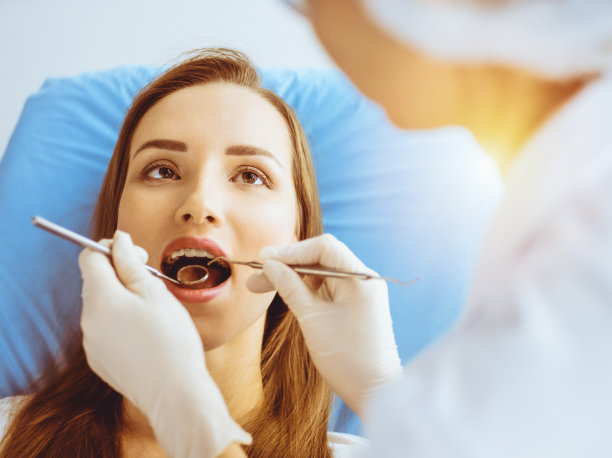The Importance of Proper Dental Care After Extracting a Tooth for Long-Term Oral Health
Summary: Proper dental care following a tooth extraction is essential for maintaining long-term oral health. This article delves into the significance of appropriate aftercare, highlighting the crucial steps needed to promote healing, prevent infection, and ensure optimal dental hygiene. We will explore the importance of following post-operative instructions, the benefits of maintaining a balanced diet, the avoidance of harmful habits, and the necessity of regular dental check-ups. Each of these aspects plays a pivotal role in ensuring that your mouth remains healthy and free from complications after a tooth extraction.
1. Importance of Following Post-Operative Instructions

After a tooth extraction, the dentist will provide specific post-operative instructions designed to facilitate healing and minimize discomfort. It’s crucial to adhere strictly to these guidelines, as they offer valuable information on how to care for the extraction site. Ignoring these recommendations can lead to complications that may prolong recovery or even require further dental interventions.
The first step is managing pain and swelling. Dentists often prescribe pain relievers and suggest cold compresses to minimize swelling. Failure to manage pain effectively can lead to inadequate recovery due to discomfort. Patients who do not follow these steps may find themselves in prolonged pain, which can hinder their overall well-being.
Moreover, keeping the extraction site clean is vital. Dentists typically recommend gentle rinsing with saltwater after the first 24 hours to maintain cleanliness without disrupting the healing blood clot. This simple step can significantly reduce the risk of infections, which can complicate recovery and lead to further dental issues.
2. Adopting a Healthy Diet for Healing
A balanced diet plays a critical role in the healing process after a tooth extraction. Consuming soft foods rich in nutrients is highly recommended during recovery. Foods such as yogurt, mashed potatoes, and smoothies are beneficial as they are easy to chew and swallow, minimizing strain on the extraction site.
Hydration is equally important. Staying well-hydrated supports overall health and aids in the healing process. Patients should avoid carbonated and alcoholic beverages, as these can irritate the extraction site and affect healing negatively. Opting for water and nutrient-rich juices can provide the necessary hydration without risking further complications.
Additionally, avoiding hot foods and drinks is advisable during the initial healing phase. High temperatures can increase blood flow to the area, which might lead to excessive bleeding or damage the healing tissues. Thus, a thoughtful approach to diet is essential for quick and effective healing.
3. Avoiding Harmful Habits Post-Extraction
Engaging in certain habits can significantly undermine the healing process after a tooth extraction. Smoking is particularly detrimental. The chemicals in cigarettes can interfere with blood flow and cause complications, such as dry socket, which occurs when the blood clot dislodges from the extraction site.
Furthermore, patients should refrain from using straws for at least a week post-extraction. The suction created can dislodge the blood clot, leading to painful recovery and unnecessary complications. It is essential to adopt habits that will promote healing rather than hinder it.
Lastly, avoiding vigorous physical activities is crucial in the initial days following the procedure. Activities such as running or lifting heavy weights can increase blood pressure and potentially lead to bleeding at the extraction site. Moderating physical exertion can maximize healing potential and ensure a smoother recovery.
4. Importance of Regular Dental Check-Ups
Regular dental check-ups are vital after a tooth extraction, as they allow dentists to monitor the healing progress and check for potential complications. Scheduling a follow-up appointment within a week after the extraction is a critical step in ensuring that everything is healing as it should.
During these visits, dentists can provide guidance on proper oral hygiene practices tailored to the patient’s specific situation. They may also recommend additional treatments if necessary, reinforcing the importance of ongoing dental care that extends beyond the extraction itself.
Long-term oral health relies heavily on proactive dental strategies. Patients who keep up with their check-ups are more likely to catch any emerging issues early, preventing future problems that could lead to further extractions or extensive dental work.
Summary:
In conclusion, proper dental care after a tooth extraction is paramount for long-term oral health. By following post-operative instructions, adopting a healthy diet, avoiding harmful habits, and maintaining regular dental check-ups, individuals can significantly enhance their healing process and uphold their overall dental well-being.
This article is compiled by Vickong Dental and the content is for reference only.


